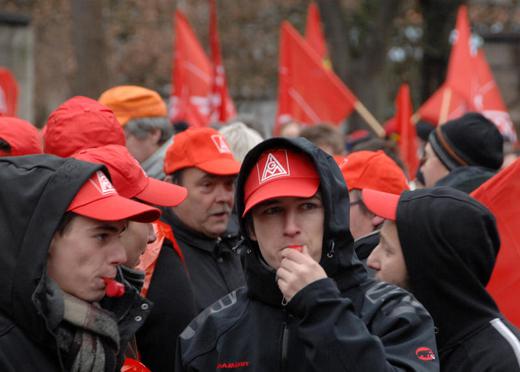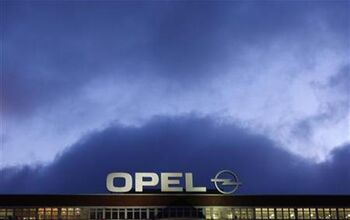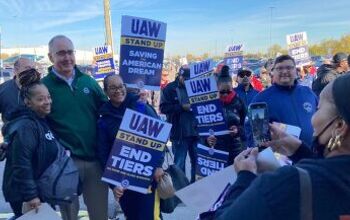Fixing Opel Will Cost More Than A Billion And More Than A Couple Of Months

Opel Chief Karl-Friedrich Stracke told reporters that an agreement with unions about a fix of money-losing Opel is a while away. “I expect this not to happen in a month or so, rather than in a couple of months, that’s at least how I see the timetable,” Stracke told Reuters.
Analysts think that Stracke is an optimist, and that restructuring Opel won’t come cheap. The guesstimate is more than $1 billion, and the payback will take a while.
“The cost is likely to be steep and the savings not immediate,” Joseph Spak, an analyst at RBC Capital Markets in New York, wrote as lead author in a note to investors today. RBC estimates European restructuring expenses of $600 million this year and $400 million in 2013.
GM’s European business lost $747 million last year after losing $1.95 billion in 2010. According to Bloomberg, the analyst consensus is that this year, there will be a $1.2 billion deficit.
Cutting 4,000 jobs in Europe will cost GM anywhere between $1 billion and $1.2 billion, or $300,000 per job, the analysts estimate. It could cost more. The unions have contracts that rule out plant closing or firings until 2014. European Unions will demand their share of the $9.19 billion GM had as a profit in 2011.

Bertel Schmitt comes back to journalism after taking a 35 year break in advertising and marketing. He ran and owned advertising agencies in Duesseldorf, Germany, and New York City. Volkswagen A.G. was Bertel's most important corporate account. Schmitt's advertising and marketing career touched many corners of the industry with a special focus on automotive products and services. Since 2004, he lives in Japan and China with his wife <a href="http://www.tomokoandbertel.com"> Tomoko </a>. Bertel Schmitt is a founding board member of the <a href="http://www.offshoresuperseries.com"> Offshore Super Series </a>, an American offshore powerboat racing organization. He is co-owner of the racing team Typhoon.
More by Bertel Schmitt


































Comments
Join the conversation
Perhaps the solution is to give away a factory or two to BMW or some other manufacturer (not necessarily autos) who needs European capacity just as Fiat has done recently? Also, why not take Opel public (like Audi) and separate it from GM's financials (for better or for worse)?
Opel was always te ny GM property that knew how t design and build great cars routinely. Amazing that GM have been completely unable to derive value from it. Or maybe not so amazing. Seems likely to me that GM without Opel going forward will be seriously handicapped as a global player.
Opel should simply announce plans to build a 120K electric car in some forgotten GM plant and wait for The Big O to provide 500 million in loan promises then turn around and pump the money into plants in Europe. Worked for Fiskar.
Vega is right, you can't get an Opel customer into a Daewoo-Chevrolet. Other customer group. It's GM itself that destroyed the image of Opel. Up until the eighties, Opel stood for above average quality. Opel, the dependable. But with the FWD cars came also the troubles. Squeezing out the profit of your suppliers will result in bad quality and that's what happened. Resulting in diminishing market share. In Germany from once 17% to about 8%. In the Netherlands Opel was the number one seller for 36 years and now it is struggling for 5th place. But now for something completely different: we all talk about big losses at Opel. But how do we know that? How do we know that GM did not move losses to Opel and took profits in their own balance? Those tricks have been done before and are rather common in worldwide companies. One example: you let Buick buy the Regal for a lot less than it costs to produce. Result: Opel looses money and Buick has a big profit.